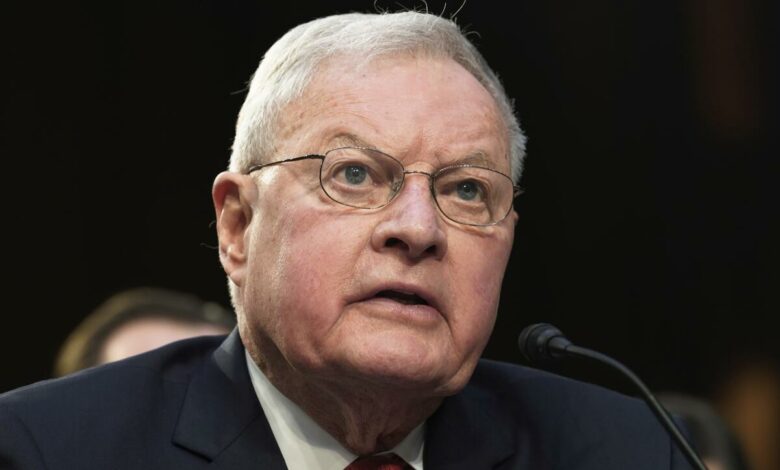
A lot of interest has been generated in the possible impact Keith Kellogg, the United States special envoy to Ukraine and Russia, may have on the ongoing conflict. People want to know how his previous proposals might influence future U.S. policy in the region.
Kellogg suggested in a paper about then-candidate Donald Trump using U.S. aid as a negotiating lever to get the opposite party to the negotiating table through withdrawing support to pressure Ukrainians into a conversation, upping it if they agree to participate. The same, he said, should be applied to Russia as he posited the idea based on incentives and penalties.
Earlier this week, Kellogg was named to the envoy position; he is a former national security adviser to Vice President Mike Pence. In the book he and former CIA analyst Fred Fleitz wrote, titled “America First, Russia, & Ukraine,” the pair criticize the handling of the Ukraine crisis by the Biden administration and classify it as an “avoidable crisis” that ensnares the United States in prolonged conflict through a retreat from the ‘America First’ national security doctrine.
The paper reports that war intensification was caused by the cautious arms supplying to Ukraine by the Biden administration and failures at diplomatic levels with Russia. According to Kellogg and Fleitz, who are national security council officials from the Trump government for 2017 to 2021, ending hostilities and sealing a peace deal requires as strong leadership as possible.
Recommendations of them include continuing the military support to Ukraine as it will scare off more Russian aggressions, demanding that any further American military aid given to Ukraine be based on that condition that Ukraine will participate in peace talks, delaying its membership in NATO until that time when it receives the peace treaty from the Russians and their security guarantees.
Therefore, the writers believe that sanctions should only be dropped after there is an acceptable peace agreement in place; they also demand levies on Russian energy sales to fund reconstruction in Ukraine.
Still, the same concern remains that if Trump comes back to the White House, he can reverse the military aid which he has withheld from Ukraine. Meanwhile, the Biden administration is ratcheting up its military and economic aid to help Ukraine defend itself against Russian aggression. Last week, the U.S. permitted Ukraine to use American-made ATACMS missiles to hit targets within Russian territory, prompting a Russian retaliatory missile strike on the Ukrainian city of Dnipro.
Meanwhile, reports circulate that the US may provide nuclear capability to Ukraine, an act that Russia declared “absolutely irresponsible” for the west.



